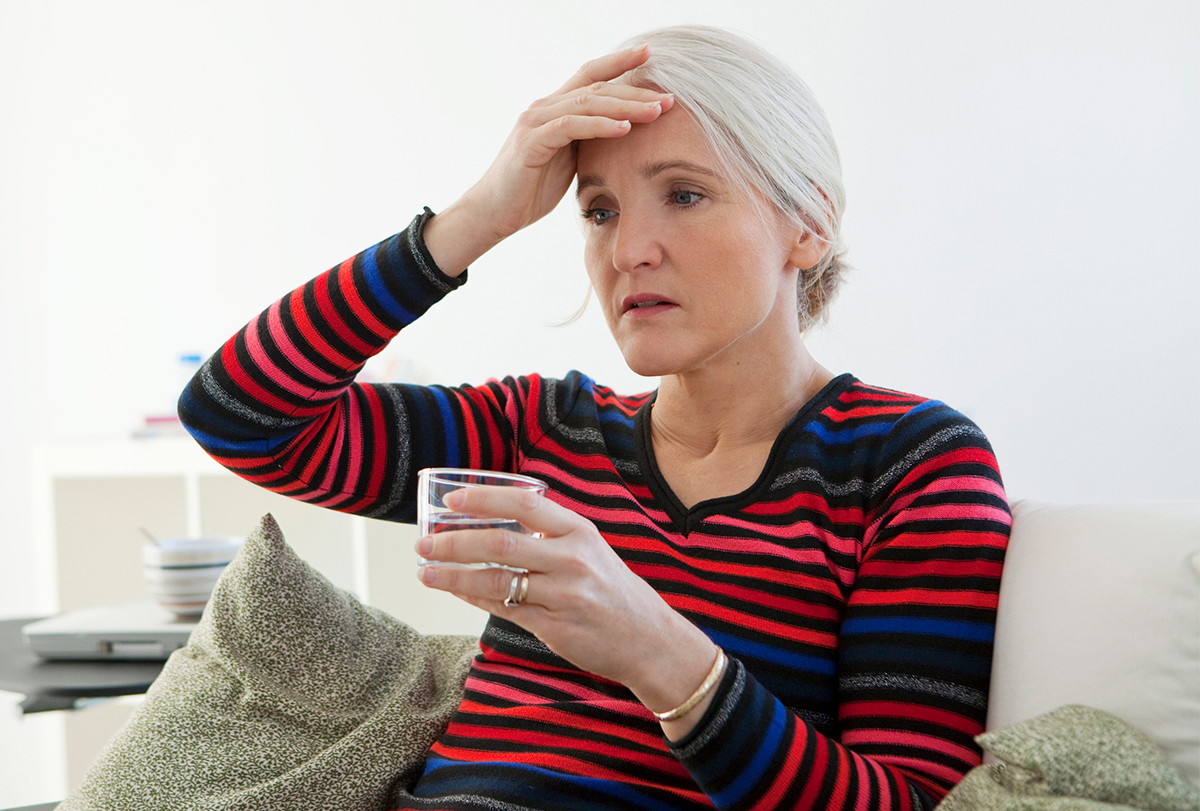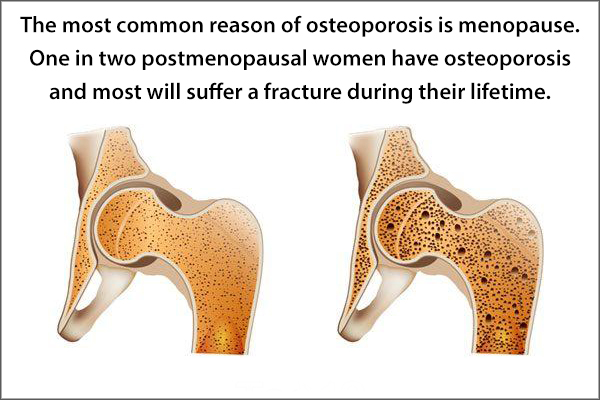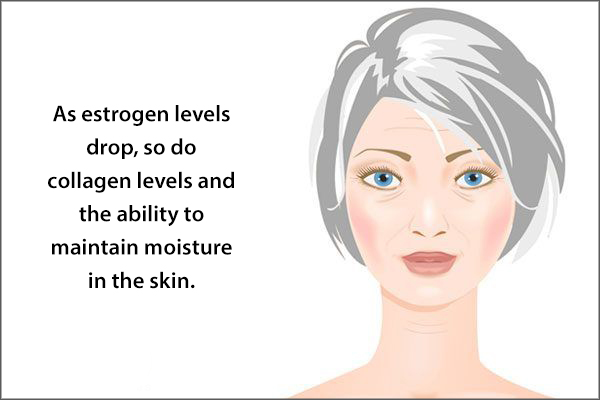In this article:
Menopause is the time 12 months after the last menstrual cycle of a woman. The average age of menopause is 51. (1)

In a recent study of women presenting to their health care providers with menopausal complaints, the chief complaints were:
- Hot flashes (in approximately 40% of women)
- Night sweats (17%) (2)
- Mood changes (16%)
- Vaginal dryness (13%)
- Insomnia and sleep disturbances (12%)
- Weight gain (12%)
The prevalence and severity of symptoms usually escalate as the reproductive stage progresses.
Menopausal Changes You Should Know
Aside from the ceasing of menstruation, these are the changes that you may experience during menopause.
1. Hot flashes continue for years

Perimenopause refers to the period when the hormone fluctuations leading to menopause begin – typically about 7 years before menopause.
During that time, the symptoms of menopause may begin, with hot flashes being one of the most common ones. Hot flashes may also continue for 5 years after menopause and, in some women, for a total of 12 years.
2. Extreme tiredness
Mood and energy levels can also be affected by the same hormonal changes that trigger other menopausal symptoms such as hot flashes and night sweats, thus contributing to fatigue. (3)
3. Weight gain

During the perimenopausal process, females are generally expected to gain about 2–5 pounds (1–2 kg), but some may gain even more, especially if they are already overweight or obese. (4)
Interestingly, even in women who have minimal weight gain, there is a tendency to accumulate belly fat and lose muscle mass. Another aspect that leads to perimenopause weight gain may be the increased appetite and elevated consumption of calories that happen in response to hormonal shifts.
Perimenopausal women also have substantially higher levels of the “hunger hormone,” ghrelin, (5) relative to premenopausal and post-menopausal women.
Leptin and neuropeptide Y, hormones that regulate fullness and appetite, can also be affected by low estrogen levels in the late stage of menopause.
4. Reduced hair quality
Analysis shows that the hair loss after menopause is due to a hormone deficiency. (6) Specifically, it is attributed to a reduction in estrogen and progesterone production. When estrogen and progesterone levels decline, hair grows slower and becomes even thinner.
A decline in these hormones also allows the relative rise of androgens, or a group of male hormones. Androgens shrink hair follicles and also contribute to hair loss. (6)
5. Sleep problems
As estrogen levels drop in menopause, the menopausal symptoms of hot flashes and sweats (the vasomotor symptoms) disrupt sleep for most women. (7) Many women are anxious about getting to sleep and then exhausted from poor sleep and early-morning wakening.
6. Bone loss

Osteoporosis is a condition of low bone mass where bones become brittle, raising the risk of fractures. In older adults with little to no signs of damage, bones in the shoulder, back, and wrist are extremely vulnerable to fractures of fragility.
In women, osteoporosis is more widespread and menopause can speed up bone loss, allowing the bones to break down more rapidly. (8) The most common reason for osteoporosis is menopause. One in two postmenopausal women has osteoporosis and most will suffer a fracture during their lifetime.
7. Extreme skin dryness

Estrogen keeps collagen healthy and promotes healthy oils in the skin. It also helps retain moisture in the skin. As estrogen levels drop, so do collagen levels and the ability to maintain moisture in the skin.
8. Frequent mood swings
During the menopause transition, women who have suffered from extreme premenstrual syndrome (PMS) or chronic depression before perimenopause are more likely to experience major mood swings or depression. (9)
Other variables that arise during this stage of life can also add to the issue. For instance, you may have trouble sleeping at night if the shifting hormones cause hot flashes (as they do for 75% of women), which can lead to a sad, nervous, or anxious mood.
9. Increase in bad cholesterol
Menopause is responsible for the sharp rise in cholesterol levels at this age, (10) not the normal aging process. And this appears to be true of all females, regardless of race.
Many, many women show a very striking spike in cholesterol levels as they reach menopause, which in turn raises the risk of future heart disease.
10. Memory issues
The theory that estrogen deficiency during perimenopause induces memory loss and that memory increases during menopause is reinforced by research on the effects of estrogen on memory.
A major research, for instance, confirms the observation that hormonal changes during perimenopause frequently induce a reduction in verbal memory. (11) It is found that these symptoms are different from the normal effects of aging.
The research also found that during perimenopause, people couldn’t understand as well. Following menopause, women returned to the learning rate they displayed before perimenopause.
Dietary Changes to Relieve Menopausal Symptoms
The following dietary changes have been shown to improve insomnia, hot flashes, mood swings, and the risk of diabetes and heart disease:
- Added sugar intake of <25mg/day
- A diet that focuses on whole grains, legumes, and fresh fruits and veggies
- Limiting foods sweetened with high-fructose corn syrup
Final Word
Staying active, eating healthy, and stress management are key to having a comfortable menopause. Your lifestyle and diet affect the way your body functions and can help it cope better with this transitional phase.
Try to exercise regularly, make the right food choices, and eat small portions to keep your weight in check. Most of the symptoms will subside with time, but some may stick around forever.
- Was this article helpful?
- YES, THANKS!NOT REALLY


